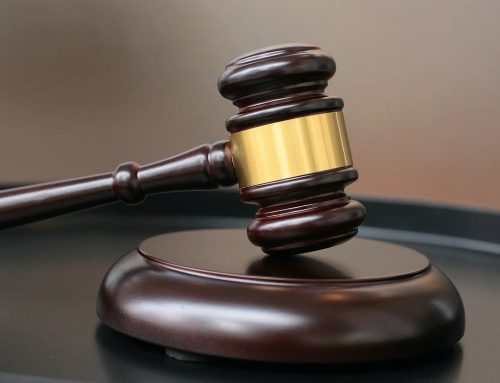If you’ve been injured or in an accident on government-owned public property you’re probably wondering who is responsible for recovery compensation. A public space might be owned by a private party, such as a shopping mall, but a government space is different. It’s not always clear as to who owns the public place and therefore, who is responsible. However, If you’ve been injured in a public park, wilderness trail, or any government-owned property, then the government ministry is considered the negligent party.
Common Injuries in Government-Owned Public Places
It can be a bit intimidating to think about fighting for and collecting compensation from the government. You can see from this list that there are several instances where the government would clearly be responsible, yet there are also many grey areas:
- Slip-and-falls on government property
- Auto accidents due to poorly maintained roads or traffic signals
- Public transportation injuries
- Assaults in public schools
- Drowning in public pools
- Electrocution from fallen power lines
- Home floods from blocked government sewage drains
- Child injuries on faulty playground equipment
- Wounds from falling tree branches in parks or on public sidewalks
- Defective or missing handrails or guardrails
- Injuries at post offices, tax offices, libraries, public housing, etc.
Limits on Compensation
The guidelines on compensation are basically the same for the government as they are for private parties. The standards for proving negligence, however, may be higher against a government or municipality. For example, a slip and fall on a private parking lot requires the plaintiff to prove the defendant was negligent whereas a slip and fall on a municipal sidewalk requires a plaintiff to prove there was gross negligence.When a government agency fails to maintain the property that is under its jurisdiction, it is considered negligent. If the negligence results in accidents and injuries, then the agency is responsible, for the injured person’s damages.
Compensation for personal injuries can include costs for:
- Medical and dental treatment
- Out-of-pocket medical expenses
- Lost wages
- Pain and suffering
That is if, and only if, you are successful in proving negligence. Pain and suffering compensation is typically included in the total damages, yet, there are limits on injury compensation.
In any event, the first step is to contact a personal injury lawyer to discuss the details, legal angles, and to determine the case’s chance for a successful resolution.
Filing a Claim Quickly is Advised
If you’re injured on public property, the second step you need to take is to file a notice of claim with the government agency responsible for maintaining the property. You must follow the government agency’s format and provide notice within a narrow period of time. If any mistakes are made, the window of opportunity will close, and you may lose any chances of resubmission. You must properly identify the area which caused your injury so that the government agency has enough information to investigate the negligence.
Although each agency may have their own forms and deadlines, all or some of the following information will be required:
- Your name and address
- Date of injury
- Description of injury
- How your injury happened
- Why the government was negligent
- How the negligence caused your injury
- Financial losses to date, such as medical bills and lost wages
Proving Government Responsibility
Government agencies must provide safe conditions and when they don’t, they’re liable for injuries suffered by anyone who had an admissible reason to be on the property.
To prove government negligence, you must show:
- The government agency owned or controlled the property.
- A negligent condition on the property caused the injury.
- The government agency knew or should have known the dangerous condition existed and did nothing to fix it.
- Your conduct didn’t cause your injury.
Good Evidence Will Help Make the Case
All successful personal injury claims must have good evidence. The more the government’s negligence can be proven, the better your chances. This checklist will help the effectiveness of the claim:
- Make certain the property is government-owned. It’s easy to identify properties, such as state roads, public schools, and public parks. But there are some properties that aren’t quite as easy to categorize as government-owned. Do your homework and find out in advance.
For example, if you slipped and fell on a sidewalk outside a store or sprained your ankle while skating on the ice rink in the public park, you may have to search property records to determine and confirm the listed owner. - Use your cell phone. Take a video or photo of the property in question. You will want to immediately document the uneven sidewalk or dangerous potholes. The government is likely to fix the property quickly once they learn about the condition that caused the injury. As you can imagine, it will be much more difficult to prove negligence once the area is fixed.
- Did anyone witness the accident? Independent witnesses that you don’t know are considered credible, as they have no personal stake in the outcome. Ask any onlookers to document what they saw and heard at that time, and remember to have them sign and date their statements.
- Make a report with the agency’s senior worker. Clarify that you did not do anything wrong. Describe whatever normal activity in which you were involved and why the injury was not due to your own negligence. Be sure to get the agency worker’s name, title, and contact information. Do not leave without getting a copy of the incident report.
- Remember to keep your medical records organized and available. Your current medical history should include the severity of your condition, doctor’s notes, medications, treatments, and associated costs. Medical records help substantiate the claim more than the other evidentiary support listed above. Be sure to tell your medical provider exactly where, when, and how you were injured during the initial and subsequent office visits.
Work with an Experienced Personal Injury Lawyer
Unless you’re on the road to recovery from a minor injury, it’s best to speak with a seasoned lawyer who is extremely familiar with injury cases that involve government property and agencies.
Seeking compensation from the government is more complicated than personal party claims. Since the deadlines are tight, there is no time to waste, and there are no extensions. There is no reason to seek compensation from a government agency without proper legal representation. One error could cost you everything, and there’s no going back for a do-over.
Wynperle Law is comprised of top-quality lawyers that have decades of experience and understand the government labyrinth. We would be pleased to sit down with you in a private consultation to determine the most effective route for your case. Contact us today, or call toll-free 1-855-821-8320.







